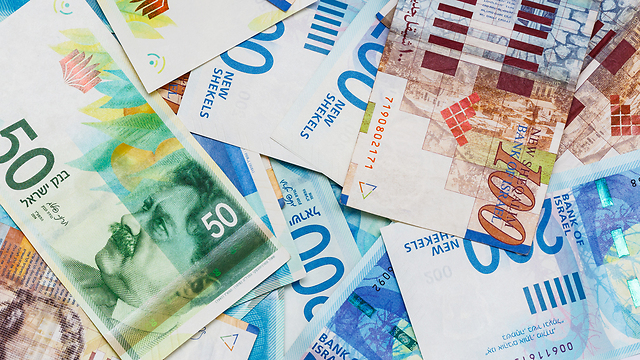
A few years ago, the average Israeli family might have gone abroad once a year. But with the European Union now allowing budget airlines to operate to and from Israel, and more money in people's pockets, getting away has become much easier.
"Prices are 20 percent higher in Israel, that's why people prefer to go abroad," said Sana Lavi, deputy chief executive of the online travel site Daka 90. "We now see people are going abroad two or three times a year."
Over the past 18 months, the shekel has gained about eight percent against the dollar, 12 percent against the euro and 20 percent against the British pound, making euro-zone Europe and Britain particularly attractive destinations.
"There are too many reasons for an Israeli to go abroad," said Nahum Kara, vice president of marketing and sales at Isrotel, Israel's leading luxury hotel chain. "You don't need to be an economist to come to that conclusion."
Government figures show there were 6.8 million departures by Israelis going overseas last year, up 15 percent on 2015. Since 2012, the number has risen 62 percent.
At the same time domestic prices, particularly for hotels and leisure activities, have risen sharply. They are now unaffordable for many Israelis, whose household incomes remain towards the lower end of OECD averages.
A five-day stay in June for a family of four at a spa hotel in Eilat, Israel's Red Sea resort, will cost around $3,000, while the equivalent stay at a five-star hotel in Cyprus will cost around $1,000, according to online agents.
"The Israeli sitting at home thinking 'where should I go on vacation without any deals, Eilat or Cyprus?' Of course he'll go to Cyprus," said Henry Jakubowicz, general manager of iBookIsrael, another travel booking website.
The number of foreigners visiting Israel continues to grow steadily—arrivals were up around 22 percent year-on-year in March—but visitors are spending less.
"People looking for a five-star experience in Israel have started searching for lower categories because the shekel is so strong," said Jakubowicz.
The growth in foreign visitors means the domestic hotel industry can cope with this downsizing now, but rising costs means their margins are narrowing.
Tourism is a significant driver of Israel's economy, contributing about 40 billion shekels ($11 billion) to gross domestic product each year and employing around 200,000 people.
Passover, the Jewish holiday that falls this week, is usually a popular time for people to go away. Complaints about high local prices become so widespread that radio stations have held call-in shows to discuss the problem.
"I can get more dollars for my shekels abroad," said Itay Talmor, 30.

















